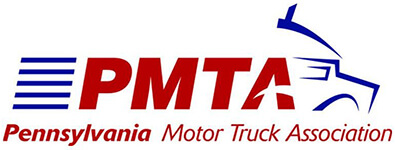Pennsylvania Enacts 2024-25 Budget
On July 11, Governor Josh Shapiro signed a package of bills containing the state’s 2024-2025 spending plan.
On July 11, Governor Josh Shapiro signed a package of bills containing the state’s 2024-2025 spending plan. The $47.6 billion budget represents a 6.2% increase in spending above last year’s level, though it’s about $700 million less than Shapiro asked for in his March budget proposal.
The plan provides more money for public schools, students attending state colleges, economic development projects, human services, and public transit.
Highlights include:
- $11 billion in K-12 education funding, including more than a billion dollars to be distributed according to a new formula designed to be more equitable.
- Investments in economic development efforts, including $500 million in funding for site development to attract more businesses to Pennsylvania.
- $30 million increase in Career and Technical Education (CTE) programming and equipment and a 6% increase in funding for community colleges and PASSHE schools.
- Tax cuts for senior citizens, families paying for childcare, and payers of student loans. Also included were two tax deductions for businesses that help their employees pay for childcare or match their payments into a state-run college savings account.
The following are updates on the issues PMTA was watching closely.
Transportation Funding
- The amount of Motor License Fund (MLF) money allocated to the PA State Police (PSP) was reduced an additional $125 million, building on reductions in the previous couple of years. Sustainably funding the PSP from elsewhere ensures that MLF money is available for road and bridge projects. Additional PSP funding in the budget includes $16 million for four more new cadet classes, or nearly 400 more State Troopers.
- Public transit agencies across the state received an increase of $80.5 million. At the same time the budget included a $80.5 million funding increase in funding for road and bridge repairs. The largest transit agency in the state, Philadelphia’s SEPTA, projected a $240 million deficit in the current year. The budget, which allocates $53 million for SEPTA, does not cover its anticipated losses. The Governor stated that the legislature plans to return in the fall to develop a more permanent funding solution for transportation.
- In addition to the budget, the legislature passed a bill that provides an annual fee for owners of electric and plug-in hybrid cars to offset the loss of gas tax revenue on these vehicles. The new fees for electric cars will be set at $200 for 2025, increase to $250 in 2026, and be tied to inflation in future years. Plug-in hybrids will pay 25% of the EV fee, or $50 in 2025. The fee will be due annually at the same time as vehicles’ registration. It’s expected that the fee will generate about $16 million in 2025 for the Motor License Fund, increasing to $30 million by the end of the decade. Commercial electric vehicles are unaffected by the bill and will continue to pay the alternative fuel tax on electric use for their vehicles.
Other Issues:
- Permitting reform – several improvements to the state permitting process were included in the budget that will reduce delays and encourage investment in economic development projects. These reforms include allowing businesses to work with third-party professions to help facilitate the review of applications for key permits, setting specific timeframes for responses, and requiring more transparent tracking of permit applications.
- Tax reform – the budget gradually eliminates Pennsylvania’s “start-up” tax by improving the treatment of net operating losses (NOLs), which allow businesses to carry losses forward and deduct them against future profits. The budget also continues the phasedown of the Corporate Net Income Tax from the current 8.49% to 7.99%.
- CARB – Pennsylvania’s delegation of its heavy-duty emissions standards to California’s Air Resources Board was not considered.
- Marijuana – adult use recreational marijuana was not considered.
- Allowing online agents to process IFTA applications and issue stickers – HB 2430 was not considered.
- The Governor’s proposed climate-related initiatives, PA Climate Emission Reduction (PACER) and PA Reliable Energy Sustainability Standard (PRESS), were not considered.
PMTA will continue to monitor these issues. Policymakers are anticipating consideration of a transportation funding package in the fall.
Powered By GrowthZone
